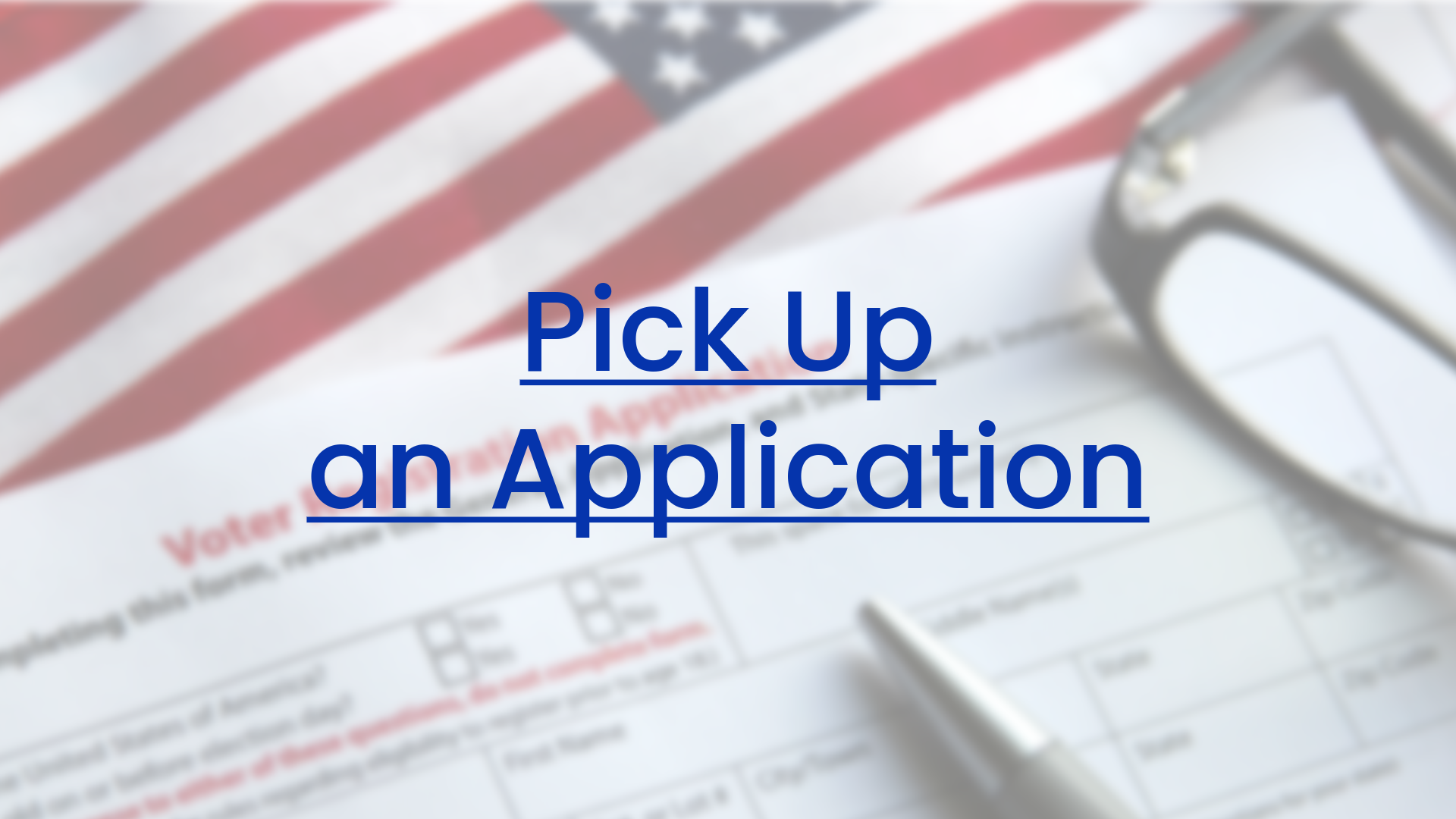HOW TO VOTE?
Here’s what you need to do to be able to vote
State law requires you to register 30 days prior to the election in which you want to participate. This means that if you are not a registered voter and wish to vote in an upcoming election, you must complete your registration at least 30 days beforehand. Without registering within this timeframe, you will not be eligible to vote on election day. It’s crucial to plan ahead and ensure your voter registration is up to date to exercise your right to vote. Remember, you can’t cast your ballot unless you’re officially registered, so don’t miss the deadline!
Eligibility to Register as a Dallas County Voter
-
You may register to vote if you fulfill all of the following requirements:
Are a United States citizen;
Are a resident of Dallas County;
Are at least 17 years, 10 months of age (To vote, you must be 18).
Have not been declared totally mentally incapacitated or partially mentally incapacitated without the right to vote by a final judgment of a court exercising probate jurisdiction;
Not finally convicted of a felony, or, if so convicted must have (1) fully discharged the sentence, including any term of incarceration, parole, or supervision, or completed a period of probation ordered by any court; or (2) been pardoned or otherwise released from the resulting disability to vote.
How to Register
ID Requirements
Under Texas law, it’s crucial for voters to understand that when casting their ballots in person, they must have one of the seven acceptable forms of photo ID ready to present at the polls. These acceptable forms include the following:
-
You can obtain a Drivers License from the Department of Public Safety
For voters aged 18-69, photo ID can be expired up to four years. For voters aged 70 and older, photo ID can be expired for any length of time if otherwise valid.
-
Election Identification Certificates may only be used for voting purposes. You can get a free Election ID Certificate (EIC)(Opens in a new window) from the Department of Public Safety.
For voters aged 18-69, photo ID can be expired up to four years. For voters aged 70 and older, photo ID can be expired for any length of time if otherwise valid.
-
You can get a Texas Personal ID Card from the Department of Public Safety.
For voters aged 18-69, photo ID can be expired up to four years. For voters aged 70 and older, photo ID can be expired for any length of time if otherwise valid.
-
You can get a Texas Handgun License from the Department of Public Safety.
ID can be expired for up to four years. For voters aged 70 and older, photo ID can be expired for any length of time if otherwise valid.
-
U.S. Citizenship Certificate does not expire.
-
For voters aged 18-69, photo ID can be expired up to four years. For voters aged 70 and older, photo ID can be expired for any length of time if otherwise valid.
-
For voters aged 18-69, photo ID can be expired up to four years. For voters aged 70 and older, photo ID can be expired for any length of time if otherwise valid.
-
Voter Registration Certificates marked with an ‘E’ after the VUID number are issued to voters who have obtained a disability exemption. These individuals are permitted to vote by presenting their voter registration certificate, which clearly reflects the exemption status.
If you cannot present one of the forms of ID above and have a valid reason, you can use a supporting form of ID from List B and execute a Reasonable Impediment Declaration. List B documents include the following:
-
A certified domestic (from a U.S. State or territory birth certificate or (b) a document confirming birth admissible in a court of law that establishes your identity (which may include a foreign birth document).
-
For the utility bill to be considered current, the utility bill must either be the most recent version or dated within two months of the date it is presented to an election official.
The address listed on the utility bill does not have to match the address on the list of registered voters.
-
The address listed on the bank statement does not have to match the address on the list of registered voters.
-
The address listed on the government check does not have to match the address on the list of registered voters.
-
The address listed on the paycheck does not have to match the address on the list of registered voters.
-
Examples of Other Government Documents:
Driver’s licenses from other states
ID cards issued by federally recognized Native American tribes (if the ID card contains an address)
DPS Receipts (without a photo)
Current or expired voter registration certificates
For voters aged 18-69, expired Texas DPS-issued driver
licenses or personal ID cards (over 4 years)
Alternatively, voters have the option to leave the polling place and return before the close of the polls on election day with an acceptable form of photo ID. If they meet all other qualifications, they can then proceed to cast a regular ballot. It’s important to note that voters must be in line by 7 PM on election day to exercise this option.
If a voter is unable to present any of the previously mentioned forms of ID or supporting documents, or if there are questions regarding their eligibility, they must be offered a provisional ballot by the Election Judge.
Vote In-Person
Dallas County utilizes a Countywide Vote Center model, offering registered voters the flexibility to cast their ballots in person at any of our participating Early Voting or Election Day Vote Centers, regardless of their precinct. This empowers voters to select a location that suits their needs and convenience.
When voting in Person at an Early Voting or Election Day Vote Center, it is important that Voters are mindful of the provisions established by the Texas Election Code, ensuring a smooth and fair voting experience for all.
Vote by Mail
Voting early by mail provides convenience for eligible voters in Dallas County. Ballot by Mail allows individuals to receive and cast their ballots by mail rather than voting in person at a Vote Center.
This method offers flexibility for voters who might be unable to visit a Vote Center during Early Voting or on Election Day for various reasons. The process involves requesting a mail-in ballot application, which, once approved, allows the voter to receive and return their ballot through postal services. Ballot by Mail aims to make the voting process more accessible and accommodating for eligible individuals.
Voters with Special Needs
Individuals with disabilities may encounter obstacles while exercising their right to vote. These obstacles can be related to mobility, vision, hearing, and cognitive impairments. To ensure equal access, election authorities provide accommodations such as Curbside Voting and ADA-compliant Voting Equipment at Vote Centers. The overarching objective is to ensure that everyone, regardless of their abilities, can vote efficiently and fairly.





